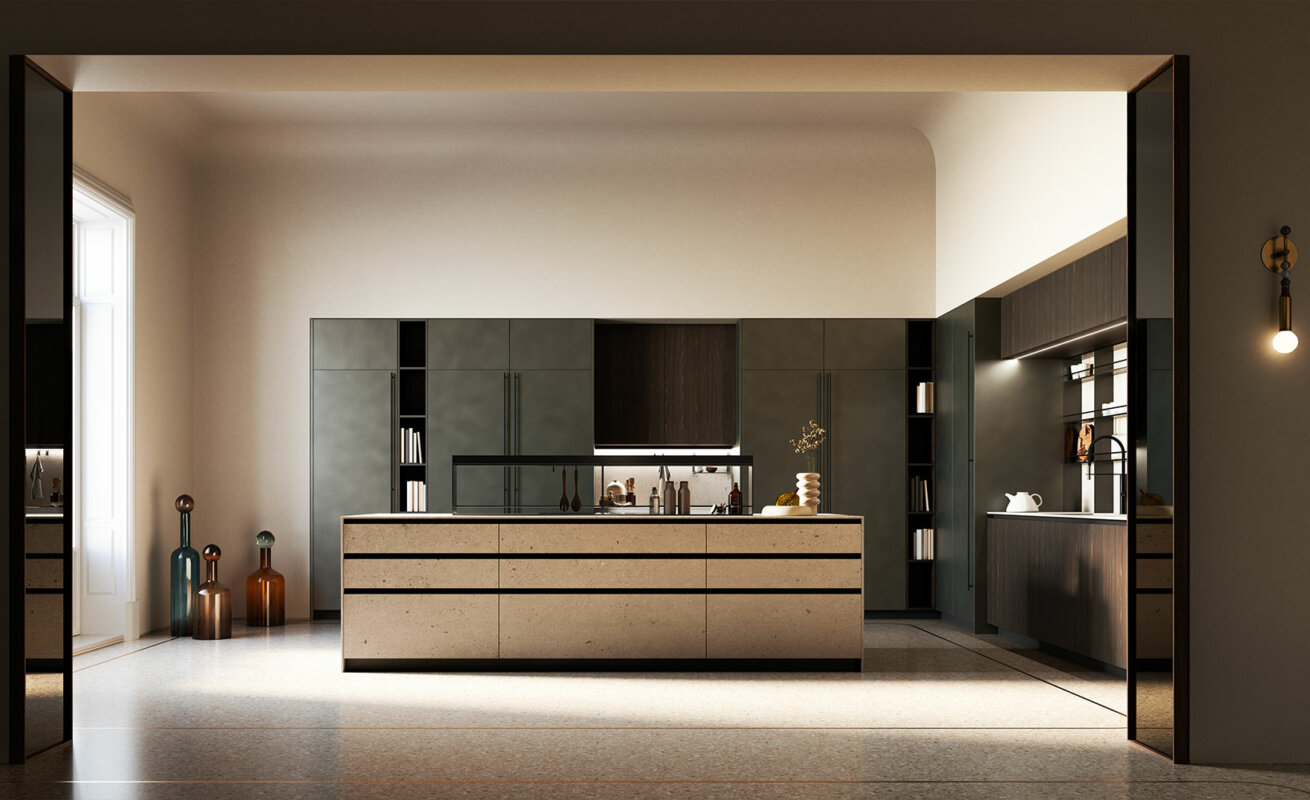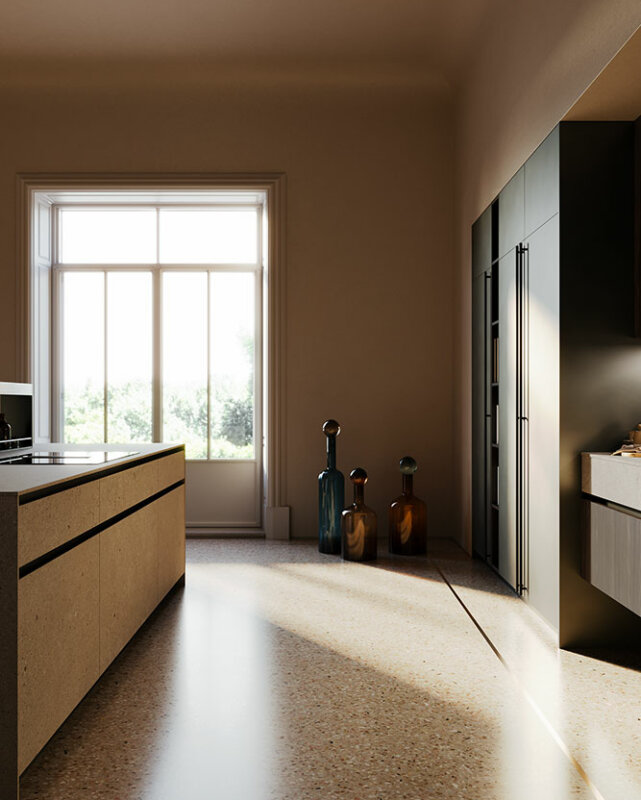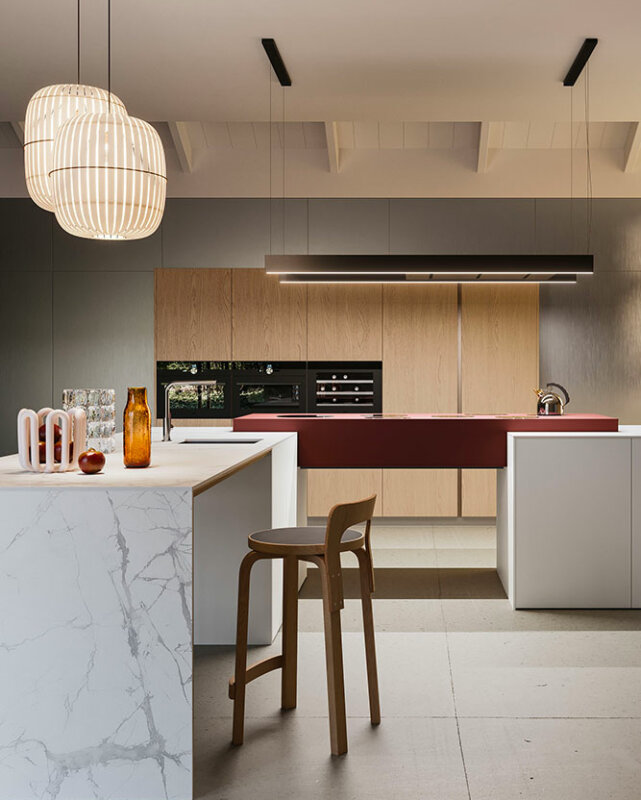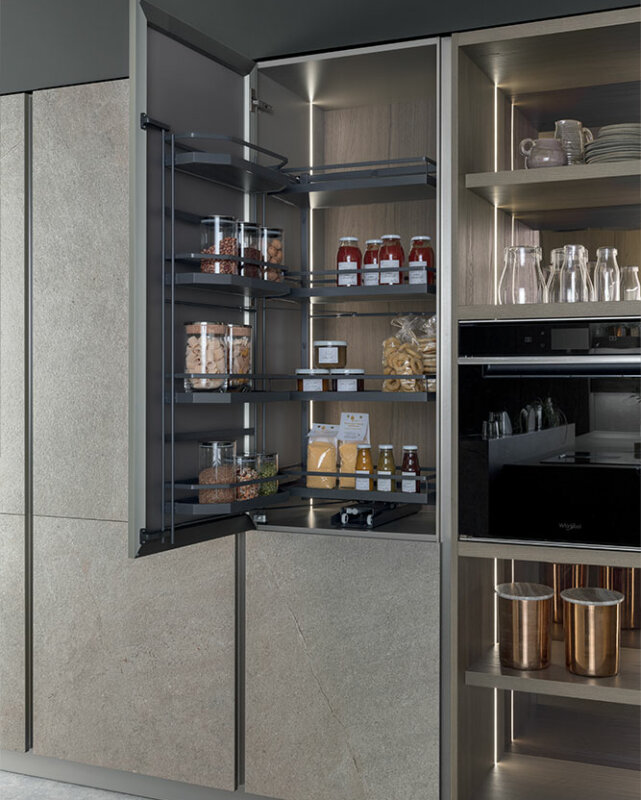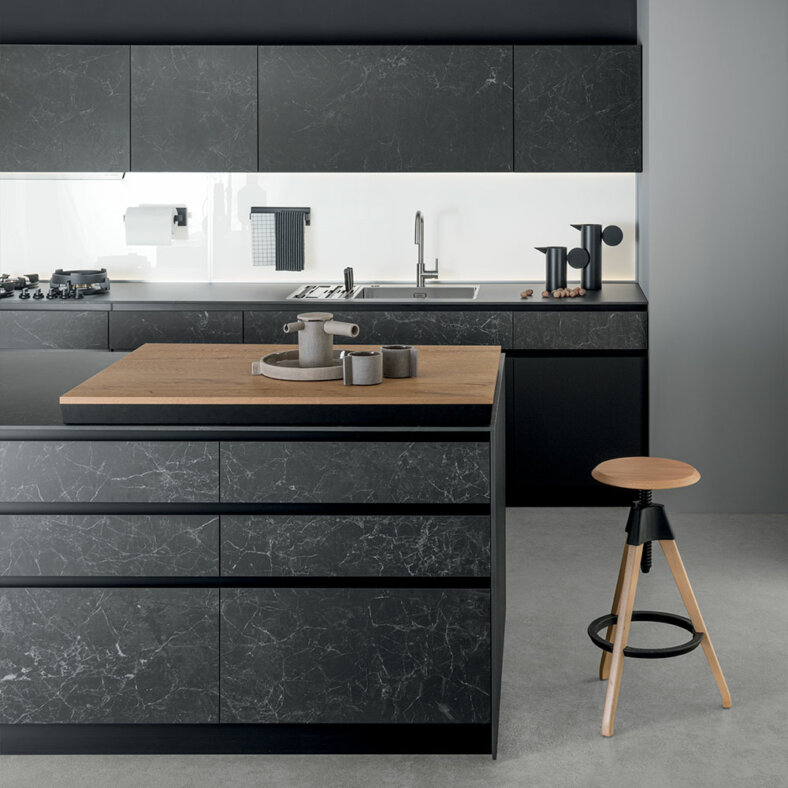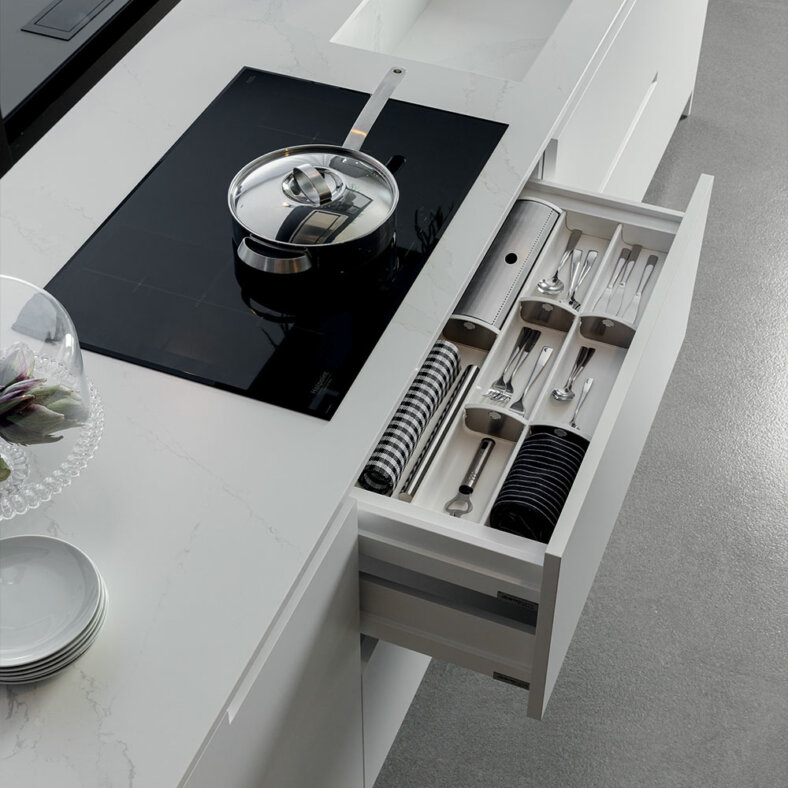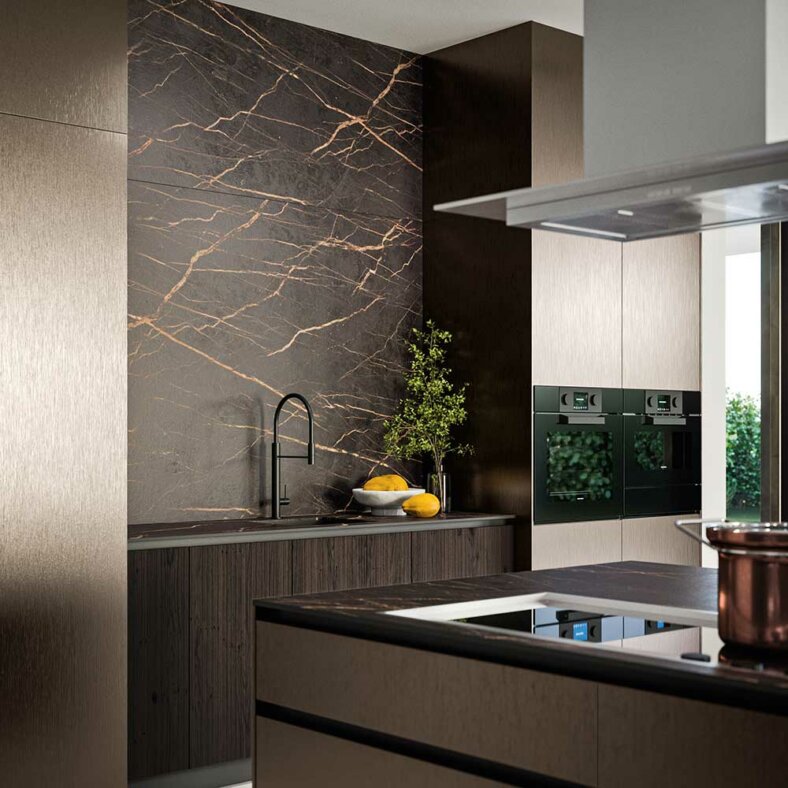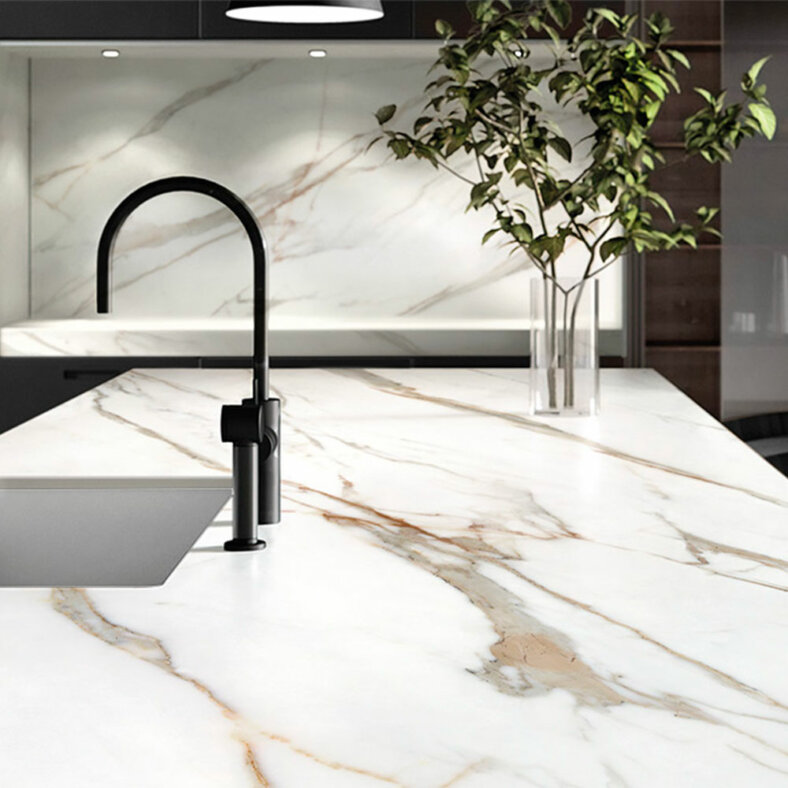Suggestions and guides
MDi
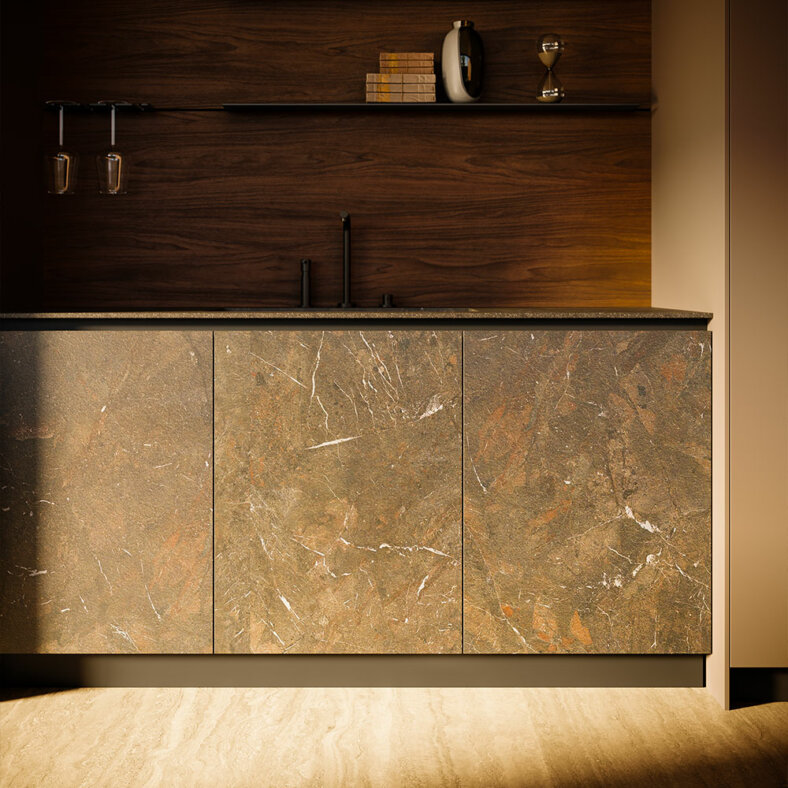
Mineral Design Innovation
Available in large formats and thin dimensions, it permits the total control of decoration with an excellent definition and a surface that is soft to the touch.
MDi: what is this material?
MDi stands for Mineral Design Innovation. This material is created from the fusion at high temperatures of extra pure minerals. It is fully designed, on both its inner and outer surface, using a technology known for this reason as “full digital”. It rapidly simulates the formation of rocks and exploits water jets (H2O Full Digital Technology) to reduce water consumption by 70% and atmospheric emissions by over 90%, in addition to using more ecological and sustainable water-based inks and enamels. The manufacturing process is based 50% on the recycling and reutilisation of materials, making MDi one of the most ecological materials in existence.
Characteristics of MDi
Sheets of MDi are soft to the touch, non-porous and hygienic, resistant to stains, impact, scratches, ultraviolet rays, thermal shifts and heat, making them very durable. The compact surface does not absorb food residues or liquids and is resistant to detergents, meaning it is fast and easy to clean. Additionally, it also undergoes a specific antibacterial treatment to prevent the growth of bacteria, funguses, viruses and protozoa. Should it come into contact with them, it destroys them and avoids their proliferation. This treatment is ecological and harmless to other living beings.
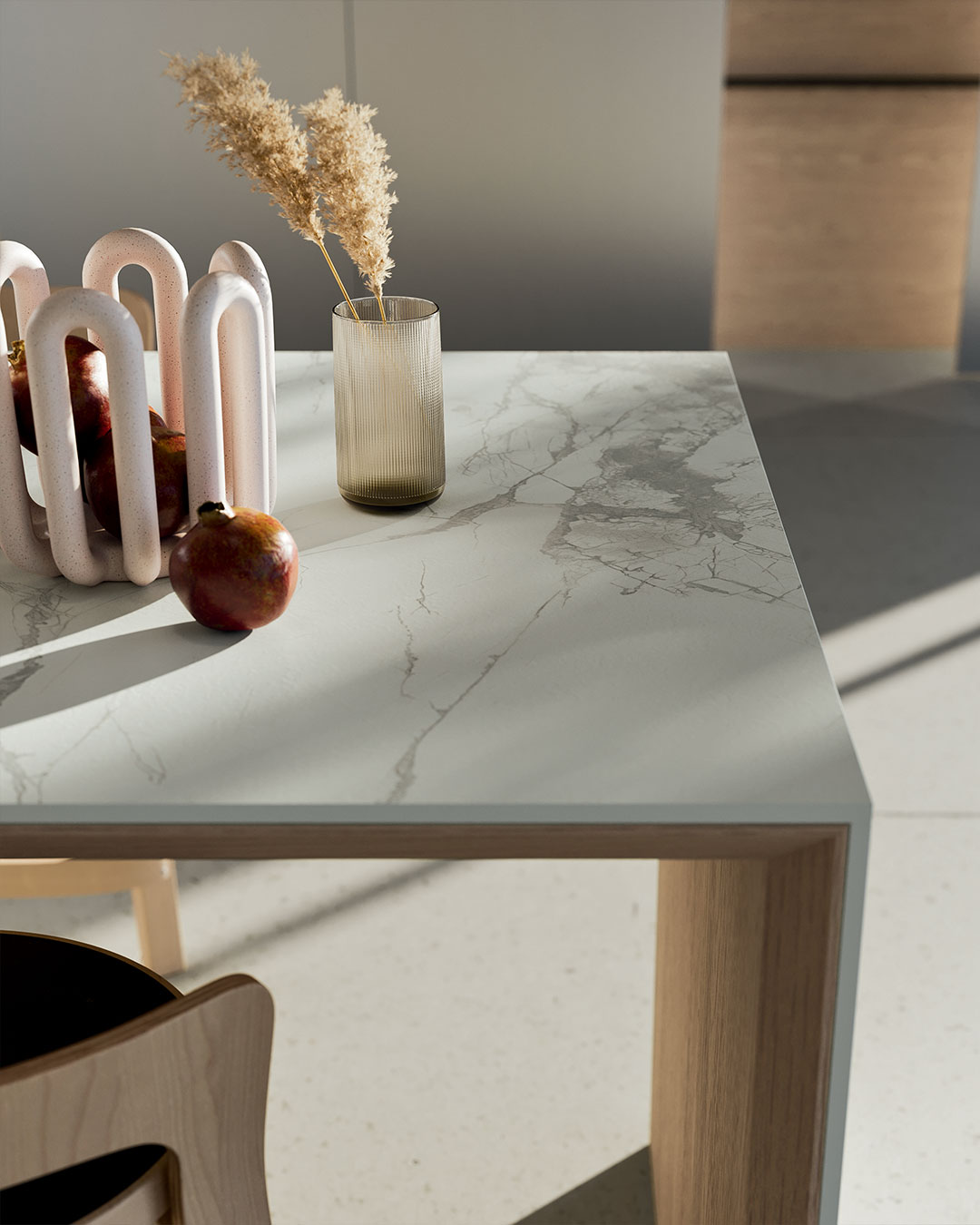
MDi work tops and doors
In the kitchen, MDi is used for doors and worktops. It offers a good level of flexibility thanks to a range of different thicknesses and surface decorations. Doimo Cucine, for example, uses 4 mm sheets mounted on the Aspen doors of the All-arounD system, or 12, 40 or 60 mm sheets for worktops.
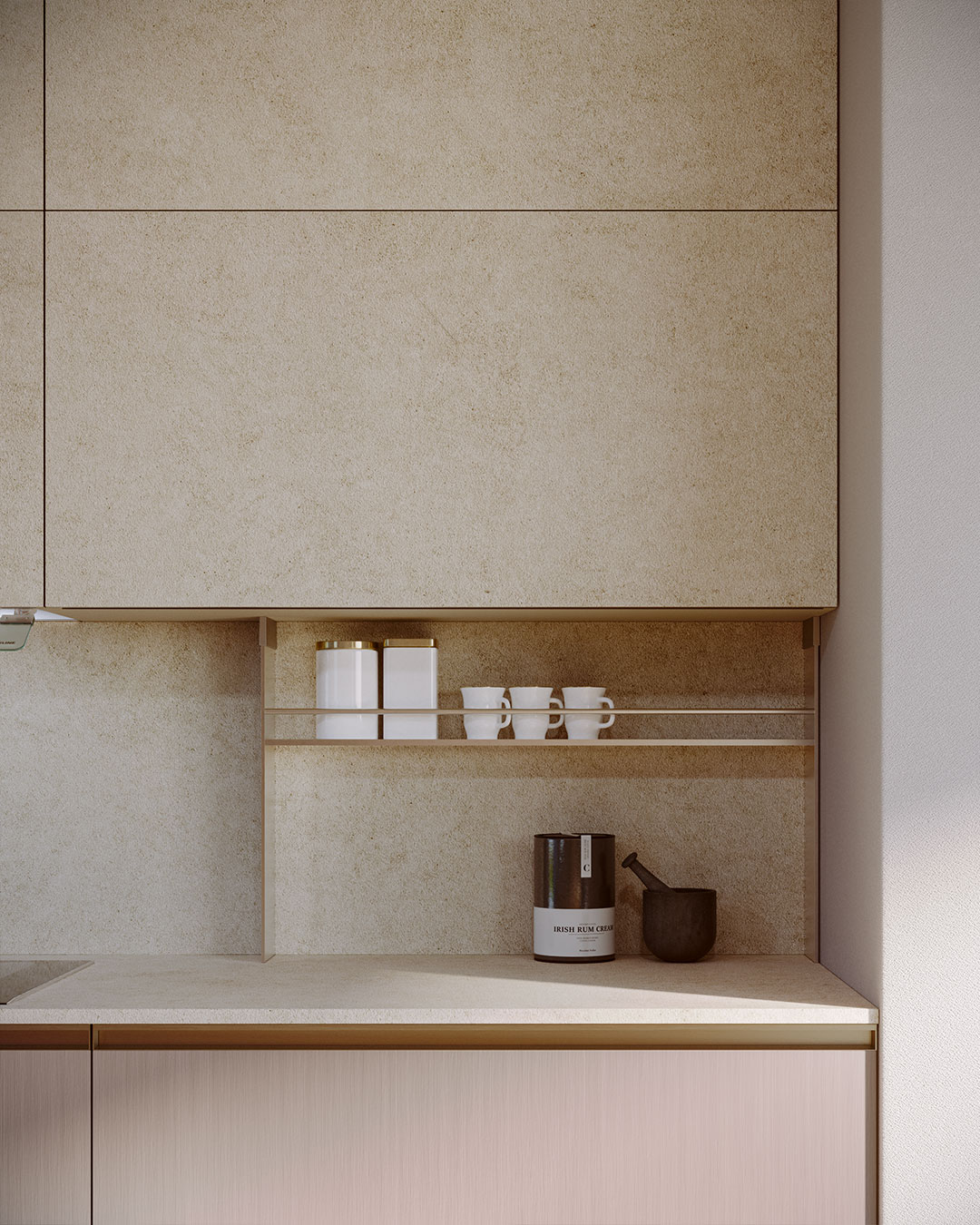
How to clean a kitchen in MDi
The cleaning of MDi is facilitated by the fact that this material does not absorb water, is resistant to stains and detergents and benefits from the aforementioned antibacterial treatment, whose effectiveness is not altered by cleaning products or other external agents.
To clean MDi it is preferable to use a soft sponge and a neutral detergent and uniformly apply it to the surface before rinsing it with water and a soft cloth. It is always preferable to avoid excessively hard rubbing as this can create halos or bright spots; when necessary, always make a test in a less visible area.
